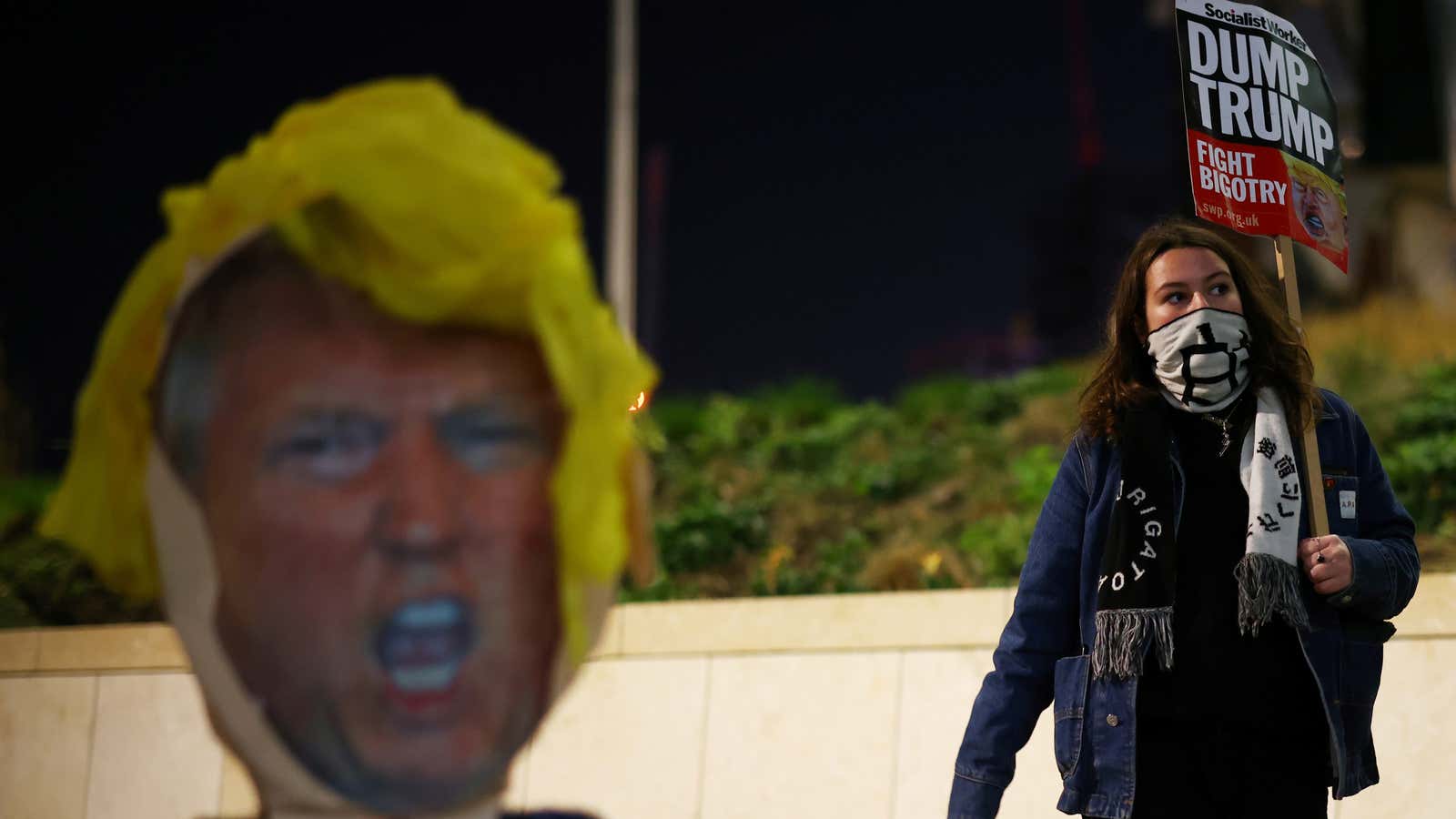In late August 2020, when the US was witnessing nationwide protests against anti-Black racism, another minority community—Asian Americans—came under threat in Texas when a letter titled “return back to your country” arrived at the doorstep of an Irving resident. The message was clear—a threat to “shoot mercilessly” immigrants of Chinese and Indian descent.
Donald Trump’s presidency has “seemingly legitimised” xenophobia with hate crimes against Asian Americans—a category that includes Indian-Americans—reaching an “alarming level” amid the coronavirus pandemic, as per United Nation experts.
“Racism and xenophobia have always been around in the US, but president Trump has created an environment where it’s more acceptable to say these things out loud because he himself practices this kind of speech,” according to Washington-based Milan Vaishnav, director and senior fellow at South Asia Program at Carnegie.
Vaishnav added that there has also been a sharp rise in casual racism, with Indian Americans experiencing incidents of getting yelled at walking down the street, being told to “Go back to your country,” and turban-wearing Sikh Americans being called “rag heads.”
“Trump is the hater-in-chief and has exercised the worst form of a bully pulpit. He has emboldened and incited hate and violence against vulnerable communities across America,” said Sikh American human rights lawyer Arjun Sethi, who has himself “experienced an uptick in bigotry and hate under this administration.”
American hate
Such experiences led Sethi to compile individual stories of racial discrimination and violence towards minority communities due to the rhetoric and politics of the Trump administration. Published in 2018, his book “American Hate” is a collection of testimonials from people impacted by hate before and after the 2016 presidential election.
At an organisational level, Lakshmi Sridaran, the executive director at the racial justice organisation South Asian Americans Leading Together (SAALT), said they have witnessed a “huge uptick” in anti-Muslim violence in particular as a result of the Trump administration and its policies.
Sridaran, who is of Indian origin, said that as a person of colour, she has seen how policies are directed towards minorities in “very violent ways” in terms of policing happening in communities of colour and the way they are being criminalised. According to her, the crucial connection that SAALT attempts to make is that while the violence and discrimination on the ground may seem intrapersonal, it’s very much connected to what’s happening at the policy level—from the federal government.
“If we see things like the Muslim ban, or attack after attack on immigrant communities, or the ways in which the protests around the George Floyd murder were violently repressed by the government, and yet they were portraying people who are protesting as violent—all of those things enable white supremacists and others to enact violence in our communities,” she said.
Xenophobia in Trump’s US
Such rhetoric and policies of the Trump administration, Sethi said, has led many Indian Americans—the younger ones in particular—to speak out and organise. “No Indian American can in good faith vote for Trump,” he said. “It would be akin to endangering your own family and community.”
Vaishnav’s recent survey of Indian Americans, which he conducted alongside Sumitra Badrinathan and Devesh Kapur, seems to suggest that the community is firmly in support of the Democrats—with racism being among the key issues of concern—as the US goes to polls.
“One of the things that seem to matter to them is this feeling of xenophobia, white nationalism, and of othering minorities in the Republican Party,” Vaishnav said. “That partly explains why they are structurally oriented towards the Democratic Party.”
Moreover, Democrats have historically been associated with being more protectionist and inward-looking—not wanting to expend resources on operations abroad because they came at the expense of domestic priorities. “But that is not really the dominant strain anymore in the Democratic Party. Those ideas now seem to mark the Republicans,” he said. “So I think you could see a change in the overall outlook of foreign policy, which has an effect on how outsiders, people of colour, and minorities are seen.”
Bitterness and polarisation in the US
While polls suggest that Democratic presidential candidate Joe Biden is leading nationally, the fear is that even if Trump disappears from the American political scene, Trumpism necessarily won’t. “The anti-minority and anti-immigrant views of the Republican Party have evolved over time. It didn’t begin and end with Trump,” said Vaishnav, adding that if Biden does win, he will likely witness four ugly years in power. “The bitterness and polarisation are very real and only deepening, so I think that there might well be a sort of backlash from the Republicans.”
The silver lining, he believes, is that the Biden administration could have some benefits just in terms of setting a kind of new tone—making it clear what kind of rhetoric is acceptable and what isn’t. “That’s not going to change people’s views overnight,” Vaishnav said. “But hopefully, it’ll kind of reset the conversation a little bit.”
Sethi agrees. “Voting Trump out of office would be unequivocally positive,” he said. “But the difficult work of taking on white supremacy, anti-blackness and racism in our towns, cities, and states nevertheless remain.”
While Biden’s vice-presidential nominee Kamala Harris has galvanised Indian-American voters, Sridaran believes there is a need to look beyond her South Asian identity and think about the policies the potential Biden-Harris administration may pass.
“Unfortunately, there were a lot of anti-immigrant policies in place even under the Obama administration. Trying to undo all of the harms that have been created over the last several decades is going to take a lot of work and commitment,” she said. “Unfortunately, the Biden campaign has been much more interested in appealing to Republicans and moderates, so that’s not a great sign as a progressive organisation to see that happening. We remain sceptical about what this administration will be able to accomplish. I think we have a lot of work cut out for us.”
This post first appeared on Scroll.in. We welcome your comments at ideas.india@qz.com.
